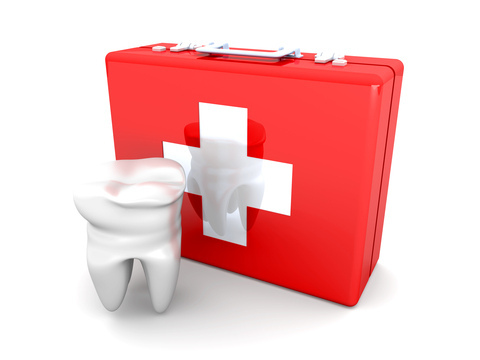August 12th, 2014

One problem with trying to answer the question as to who benefits from Invisalign is that the simple answer is “almost everyone.” The see-through, almost invisible aligners for straightening teeth are specifically molded to fit each individual’s mouth. Unlike conventional braces, they can be removed when eating and when cleaning the teeth. Because they use less force in straightening teeth than metal braces, the risk of harm to teeth is lessened.
Benefits to adults
Traditional braces are associated with children and teenagers. Many adults want to have their teeth straightened but cannot decide which is worse: having crooked teeth or wearing metal braces. They also worry about having to change their diet by not being able to eat the foods they normally enjoy.
If you are an adult considering braces, our team at Prairie Ridge Orthodontics will tell you Invisalign aligners will give you the best of all worlds. Your teeth will be straightened with virtually invisible braces. You can remove your aligners when you eat so you can enjoy any food you normally would consume. You do not have to worry about embarrassing yourself by getting food stuck in your braces. You simply clean your teeth normally after eating and replace your aligners. If there is a special occasion during which you do not want to have any braces at all, you can remove the aligners for a few hours without causing any damage.
Benefits to teenagers
Dr. Jeff Loveless and our team know that teenagers are often involved in contact sports or gymnastics. Others find that having metal in their mouth interferes with their ability to play a musical instrument. Traditional metal braces contain wires and brackets that can cause damage to the mouth and gums; this is not a risk with Invisalign aligners.
For sports that require players to wear mouthguards, the expense of specially constructed mouthguards to fit over braces is avoided. The aligners can be removed during sports activity, and a normal mouthguard is worn. Teenagers who play musical instruments simply remove the aligners when practicing or playing in the band or orchestra.
Teenagers often feel they are too busy to spend time and trouble flossing teeth between the wires and brackets of traditional braces. Since the Invisalign aligners are removable, brushing and flossing are simpler and more likely to be performed.
For more information about Invisalign or Invisalign Teen, or to schedule an initial consultation with Dr. Jeff Loveless, please give us a call at our convenient Faribault, Zumbrota, or Owatonna, MN office!
August 5th, 2014

Now that many of the schools in Faribault, Zumbrota, or Owatonna, MN are back in session, Dr. Jeff Loveless would like to remind all of our patients about the importance of scheduling appointments in advance. With school, clubs, sports, and family duties to consider, we know that it can be challenging to find time to visit Prairie Ridge Orthodontics this fall. In order to accommodate all of our patients’ busy schedules, it is important that you plan ahead for your appointments so that we are able to provide you with a convenient appointment time.
As always, please remember to give us advanced notice if you’re unable to make your regularly scheduled appointment with Dr. Jeff Loveless and our team. Feel free to give us a call if you have any questions, or if you would like to schedule your fall appointment.
We’ll see you soon and hope summer is winding down nicely for you and your family!
July 29th, 2014

At Prairie Ridge Orthodontics, we know orthodontic emergencies are neither convenient nor timely. If you are a patient of record, Dr. Jeff Loveless and our team are more than willing to see you after hours or over the weekend. As a general rule, you should call our Faribault, Zumbrota, or Owatonna, MN office when you experience severe pain or when you have a painful appliance problem that you can’t take care of yourself. We’ll be able to schedule an appointment to resolve the problem. If you have an orthodontic emergency after regular office hours, please give us a call and follow the emergency prompts to contact one of our doctors.
July 22nd, 2014

Dr. Jeff Loveless and our team at Prairie Ridge Orthodontics know that for some of our patients wearing braces, it can be difficult to weave through those wires and brackets as you brush and floss during your treatment.
Some of our patients use a water pick to flush out food and other particles and bacteria stuck between their teeth as the water can reach behind the metal wires and hit spots where your floss simply cannot reach. People suffering from gum disease also find water picks quite effective because of their ability to flush out bacteria from inside the deep pockets.
Water picks are friendly to braces and are also gentle on the gums. They are less likely to cause bleeding for people with sensitive teeth or gums. But as many benefits as they may have, Dr. Jeff Loveless and our team want you to know that water picks should never be used as a substitute for flossing. Though they are great tools for helping improve oral health while you are in treatment, they are just not a good enough tool on their own to keep your mouth and gums gingivitis- and decay-free. Water picks are also incapable of removing plaque from teeth as effectively as floss can. While water picks rinse the sticky bacteria off your teeth, flossing is actually more effective as it actually scrapes the bacteria off of your pearly whites.
If you have any questions about water picks or any general questions or concerns about your orthodontic treatment, we encourage you to please ask us below or give us a call!



